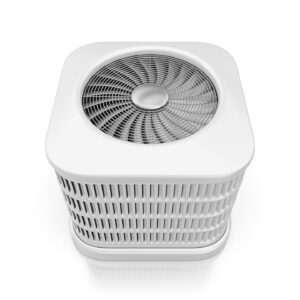Your air conditioner is your loyal companion during scorching summers, keeping your home cool and comfortable. But just like any machine, it can malfunction. A refrigerant leak is a common issue that can significantly impact your AC’s performance and even harm your health.
This definitive refrigerant leak checklist equips you with the knowledge to detect a potential leak and understand why calling a professional for AC repair in Warren is crucial.
What Is Refrigerant and Why Does It Leak?
Refrigerant is the lifeblood of your air conditioner. It absorbs heat from your home’s air and releases it outside. Leaks can occur due to various reasons, including:
- Normal wear and tear: Over time, connections and seals can weaken, allowing refrigerant to escape.
- Corrosion: Exposure to moisture or acidic elements can corrode pipes and lead to leaks.
- Physical damage: Accidental bumps or improper handling during maintenance can cause punctures in the refrigerant lines.
Signs of a Refrigerant Leak:
While a professional diagnosis is necessary to confirm a leak, here are some signs that might indicate trouble:
- Reduced Cooling Performance: Is your air conditioner struggling to keep your home cool, even when set to a low temperature? A refrigerant leak can reduce the system’s ability to absorb heat.
- Hissing or Bubbling Sounds: Listen for unusual sounds coming from your AC unit. Hissing or bubbling noises can be a sign of refrigerant escaping.
- Icing on the Coils: Frost buildup on the evaporator coils is normal during operation. However, excessive ice buildup or ice forming on the suction line (the larger pipe) can indicate a leak.
- Higher Electricity Bills: A leaking AC system has to work harder to maintain the desired temperature, leading to increased energy consumption and higher electricity bills.
- Unpleasant Odors: Some refrigerants have a distinct chemical odor. If you detect a strange smell emanating from your AC unit, it could be a sign of a leak.
Why You Should Call a Professional for AC Repair:
While the checklist above can help you identify potential signs of a leak, it’s crucial to call a professional AC repair technician for several reasons:
- Safety Concerns: Refrigerant can be harmful if inhaled. Professionals have the training and equipment to handle refrigerant safely.
- Diagnosis and Repair: A professional can accurately diagnose the source of the leak and recommend the proper repair solution. Attempting DIY repairs can worsen the problem and even pose safety risks.
- Refill and System Recharge: Replenishing lost refrigerant and recharging the system requires specialized equipment and expertise.
- Leak Repair and System Seal: Professionals can effectively seal the leak and ensure your AC system functions optimally.
- Preventing Further Damage: A timely repair can prevent further damage to your AC unit and extend its lifespan.
Taking Action to Protect Your AC System:
Here’s what you can do to safeguard your AC system:
- Schedule Regular Maintenance: Regular maintenance by a qualified technician can help identify potential leaks early and ensure your AC operates efficiently.
- Avoid DIY Repairs: Unless you’re a licensed HVAC professional, leave AC repairs to the experts.
- Invest in a Programmable Thermostat: A programmable thermostat helps regulate AC usage and reduces wear and tear on the system.
Established in 1912, Max Sr & Paul Schoenwalder Plumbing, Heating and Air Conditioning, A Corp. is your trusted resource for reliable AC repair. Reach out to us today.

